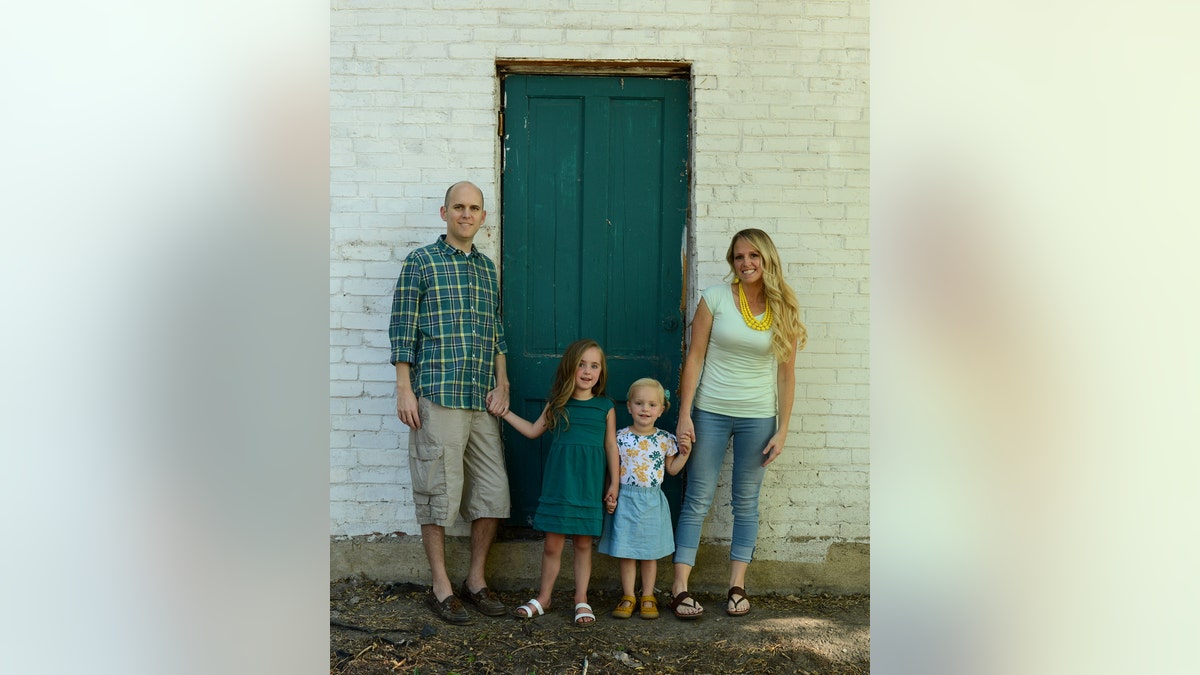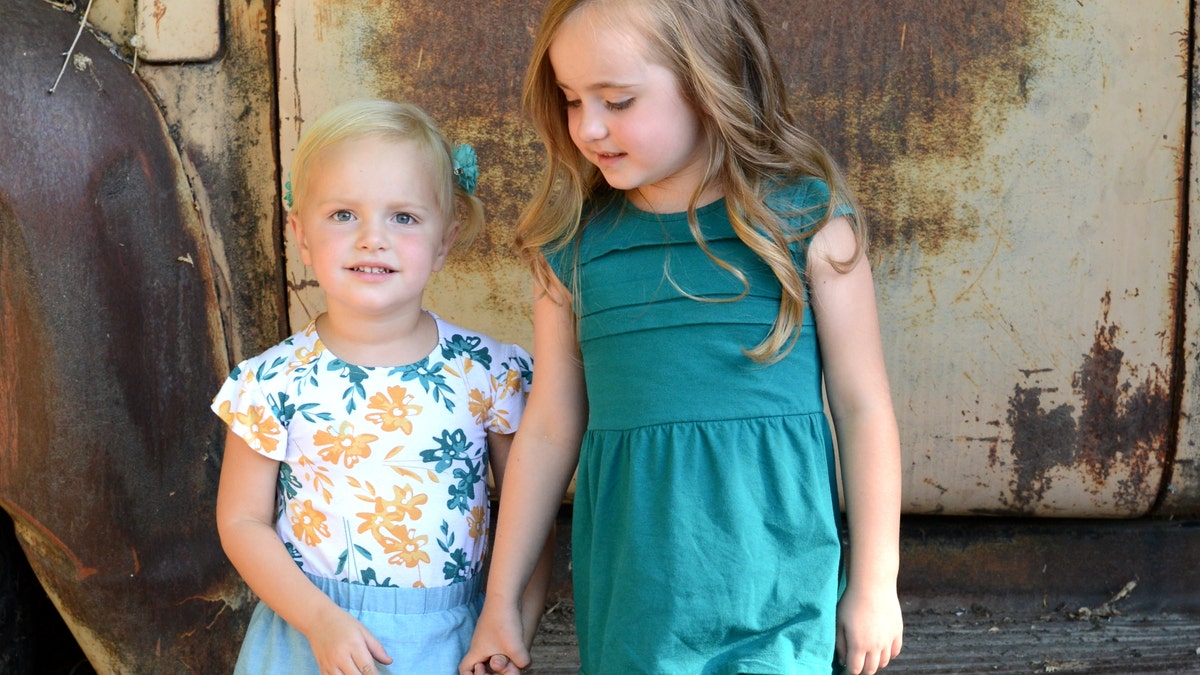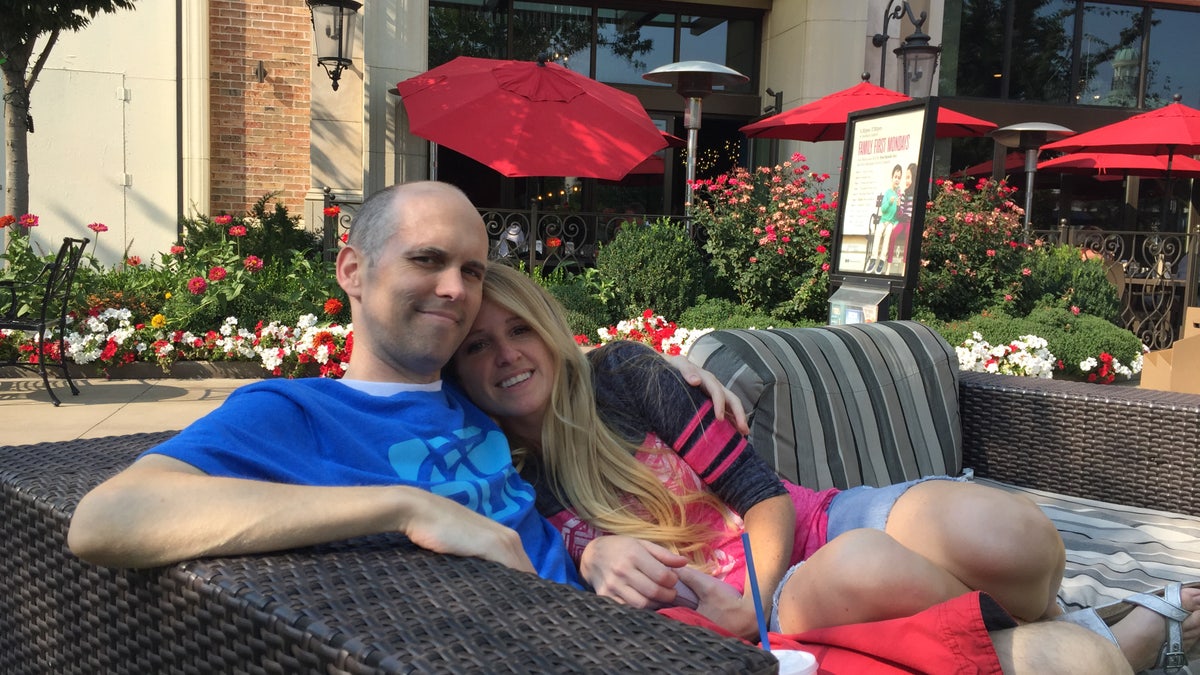
Paul Moore and his family (Courtesy Joni Moore)
Paul Moore, 36, of Farmington, Utah, sits across from me on an oversized couch with his head resting against a pillow. I have no idea where our lengthy interview will lead, or how much it will change me.
“We all have two stories to tell,” he says, stealing a glance at his wife, Joni. “I choose to tell mine in the best way possible — with grace.”

Moore’s face is thin, but his eyes are wise. He has a large lump at the middle and top of his chest that’s visible through his lightweight, pull-over sweatshirt. His arms are wiry and his legs are tired.
I type the words: Paul Moore is dying. But his spirit and faith? They couldn’t be more alive.
When given a chance to share advice with my readers, Paul speaks with urgency. “Please quit wasting time with negative thoughts. Let your perspective change. It’s worked for me. There are so many good people all around you. I’ve had to let those thoughts go and start driving in the slow lane. You can do this, too.”
In February, at the insistence of a neighbor, Moore and his wife visited the emergency room with questions about what they thought were cysts and pulled muscles in his shoulder and neck.
Tests revealed approximately 40 tumors of various shapes and sizes, including some on his skull.
Since that winter morning, Moore has had radiation, six surgeries, including kidney removal and a complete hip replacement. Today he walks with a cane because doctors say he could break his other hip by simply walking across their living room.

In August, Moore was told he has, perhaps, two months to live. But you wouldn’t know it from his faith and optimism. “We’re going to be alright,” he says with a smile.
He’s right, in large part because of a new foundation meant to outlive all of us. The Paul Moore Foundation was created by four women with a deep desire to help ease the financial burden of Paul’s terminal illness. Their initial efforts will support the Moores, but their goal is to meet needs of other families with a terminally ill parent.
“It’s surprising to us,” Paul says, “that more help isn’t available for families where the breadwinner is terminally ill.”
Not surprisingly, Joni becomes emotional discussing the love that surrounds them. “The goodness of people? It has no boundaries,” she says, wiping tears and looking at Paul. “Our gratitude just rises up and up and up every day. We are truly amazed by what people are doing for us.”
Paul and Joni aren’t alone at home. They have two daughters, Ellie, 5, and Reese, 3. Both are on the autism spectrum and Paul admits to worrying about what they’ll remember about their dad. “I’ve written letters to them and we’re making videos,” he said, wiping tears from both eyes. When he’s done, Joni grabs his hand.
“They won’t forget,” she whispers.
Paul confides that he’s not scared of dying, but he does wonder and worry about his Joni and the girls. “I wonder … where will it happen and when? How do you know? I can’t imagine just not waking up some day and then the kids seeing me taken out.”
Again through tears, Joni promises the girls will be protected from the more challenging moments of the days to come.
“Great things come from trials,” he adds. “I’ve learned the depression doesn’t get me anywhere. I consider myself one of the luckiest guys on Earth. What a blessing to have time to prepare, even to mentally prepare to see what I will see and to be worthy of the other side.”
All of it, he prays, will have a positive impact on his family until they’re reunited. This principle of eternal families is something even his daughters understand. “Ellie knows what’s happening. She shares a lot, maybe even too much,” Paul says, as he and Joni both smile. “She says to people, even in the grocery store, ‘My daddy has cancer.’”
More importantly, Ellie also shares that even though he’ll soon be gone, one day they’ll be with him again in heaven.
When given a chance to share advice with my readers, Paul speaks with urgency. “Please quit wasting time with negative thoughts. Let your perspective change. It’s worked for me. There are so many good people all around you. I’ve had to let those thoughts go and start driving in the slow lane. You can do this, too.”
Paul Moore is right — everyone has two stories. We could have spent our interview discussing sickness, treatments and heartache, or used the time to talk about inspiration. With their remarkable candor, the Moores are taking a chance that Paul’s journey to the other side might inspire someone else.
“Make a choice,” Paul says. “And always tell the most inspirational story you can. I view what I’m experiencing as a privilege and a blessing. That’s the story we want to tell.”
They’re doing that and so much more. Paul Moore has lived a grateful, faithful life, and he’ll die the same way. And while the timing may not be his to determine, he’s living and telling his family’s story on his terms.
And he’s telling it with grace.
May we all do the same.
